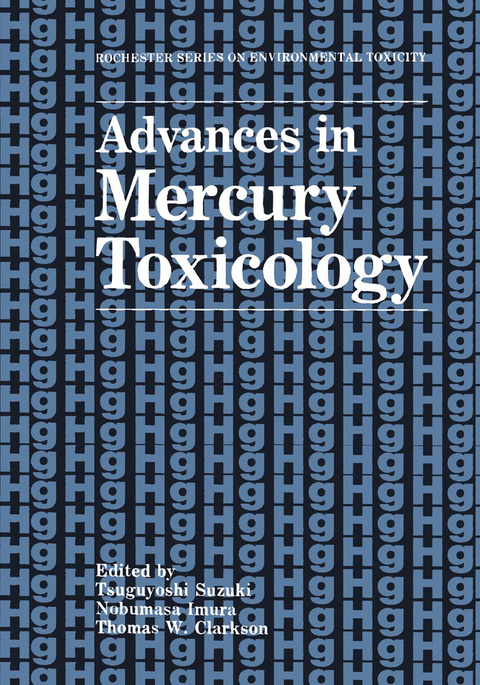
Advances in Mercury Toxicology
Springer-Verlag New York Inc.
978-1-4757-9073-3 (ISBN)
Overview.- Session 1: Fate in the Environment.- Increased Methylmercury Contamination in Fish in Newly Formed Freshwater Reservoirs.- Speciation of Mercury in the Environment.- Session 2: Disposition in the Body.- Individual Difference of Methylmercury Metabolism in Animals and Its Significance in Methylmercury Toxicity.- Mechanisms of Urinary Excretion of Methylmercury(MM).- Role of Glutathione in Mercury Disposition.- Mechanism for Renal Handling of Methylmercury.- Methods for Decreasing 203Hg Retention in Relation to Age and Route of Exposure.- Immunohistochemical Localization of Metallothionein in Organs of Rats Treated with either Cadmium, Inorganic or Organic Mercurials.- Session 3: Biotransformation.- Mercury Vapor Uptake and Oxidoreductases in Erythrocytes.- Differential Determination of Ionizable and Unionizable (Inert) Forms of Inorganic Mercury in Animal Tissues.- Session 4: Molecular Mechanisms of Toxicity.- Role of Neuronal Ion Channels in Mercury Intoxication.- Role of Oxidative Injury in the Pathogenesis of Methylmercury Neurotoxicity.- Alterations in Gene Expression Due to Methylmercury in Central and Peripheral Nervous Tissues of the Rat.- Microtubules: A Susceptible Target of Methylmercury Cytotoxicity.- DNA Damage by Mercury Compounds: An Overview.- Session 5: Selenium as a Modifying Factor of Mercury Toxicity.- Possible Mechanism of Detoxifying Effect of Selenium on the Toxicity of Mercury Compounds.- Overview on the Protection Given by Selenium Against Mercurials.- Session 6: Toxic Effects of Mercury.- Effect of Mercuric Chloride on Angiotensin II-Induced Ca++ Transient in the Proximal Tubule of Rats.- Effects of Methylmercury on the Developing Brain.- Experimental Approaches to Developmental Toxicity of Methylmercury.- Neuropathology of Methylmercury Intoxication.- Behavioral Toxicology of Mercury Compounds.- Effect of Methylmercury on Sleep Patterns in the Rat.- Effect of Inorganic Mercury on the Immune System.- Session 7: Clinical and Epidemiological Aspects.- Exposure to Mercury in the Population.- Blood and Urinary Mercury Levels as Indicators of Exposure to Mercury Vapor.- Epidemiological and Clinical Features of Minamata Disease.- Special Lecture and Closing Remarks.- Mercury in Human Ecology.- Appendix I.- Program.- Appendix II.- Publications from Rochester International Conferences in Environmental Toxicity.
| Reihe/Serie | Rochester Series on Environmental Toxicity |
|---|---|
| Zusatzinfo | XXI, 490 p. |
| Verlagsort | New York, NY |
| Sprache | englisch |
| Maße | 178 x 254 mm |
| Themenwelt | Medizin / Pharmazie ► Medizinische Fachgebiete ► Pharmakologie / Pharmakotherapie |
| Medizin / Pharmazie ► Pharmazie | |
| Studium ► Querschnittsbereiche ► Epidemiologie / Med. Biometrie | |
| Studium ► Querschnittsbereiche ► Prävention / Gesundheitsförderung | |
| Naturwissenschaften ► Biologie ► Ökologie / Naturschutz | |
| Technik ► Umwelttechnik / Biotechnologie | |
| ISBN-10 | 1-4757-9073-2 / 1475790732 |
| ISBN-13 | 978-1-4757-9073-3 / 9781475790733 |
| Zustand | Neuware |
| Haben Sie eine Frage zum Produkt? |
aus dem Bereich


